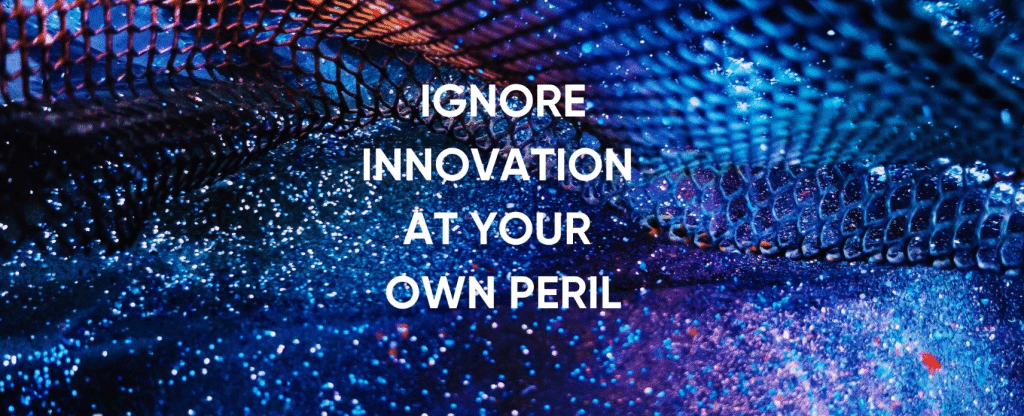Risk and Reward: Why Luxury Hospitality Marketing Stays in the Safe Zone
Luxury hospitality is one of the most brand-sensitive industries in the world. Yet this very sensitivity often slows innovation. Many hotel executives know their marketing needs modernization—AI, segmentation, automation—but hesitate to take risks that could disrupt guest perceptions or owner expectations.

This reluctance to experiment is not born from a lack of knowledge or creativity but from the delicate balance these executives must maintain. The stakes are high: luxury travelers are notoriously difficult to please, and their loyalty is as fragile as the crystal chandeliers that adorn the lobbies of the five-star resorts they frequent. Marketing managers and executives, ever cognizant of this fragility, find themselves caught in a bind. Innovation might bring the exhilaration of success, but it also brings the risk of failure—and in the world of luxury, failure is a bitter pill.
The Weight of Tradition
Luxury hotels, especially those with long-standing histories, are steeped in tradition. Many properties have been passed down through generations, with a carefully cultivated image of elegance, exclusivity, and refinement. Marketing executives often see themselves as the stewards of this heritage, tasked with upholding the brand’s prestige. Any deviation from the established marketing norms can feel like a betrayal of the property’s legacy.
Consider the grand dames of hospitality—the Ritz, the Waldorf Astoria, and the Breakers Palm Beach. These properties have succeeded, in part, by remaining faithful to their history. Yet this very faithfulness to tradition creates a paradox: it stifles the desire for change. Innovation, even when necessary, is viewed with suspicion. Executives fear that new marketing tactics—such as embracing influencer collaborations, incorporating cutting-edge AI-driven personalization, or new and innovative email marketing strategies—might cheapen the brand.
This fear is not entirely unfounded. Luxury, by its nature, is an industry rooted in exclusivity. The introduction of a democratizing marketing tool, like social media, could be perceived as diluting the brand’s elite appeal. There is a tacit understanding among luxury marketing professionals that not everyone should have access to their world, and this belief has often led to a marketing approach that prioritizes exclusivity over engagement.
The Price of Playing It Safe
Playing it safe, however, has its own perils. The world of marketing is changing at a breakneck speed, and even the most storied luxury brands are not immune to these shifts. Younger generations, particularly Millennials and Gen Z, are entering the luxury travel market, and they bring with them different expectations. These digital-native consumers seek authenticity, personal engagement, and sustainability. They are less impressed by tradition for tradition’s sake and more drawn to brands that are willing to take risks, embrace new ideas, and speak to their values.
Yet, when faced with these new realities, many luxury marketing executives hesitate. There is a lingering belief that taking risks means courting disaster. One marketing misstep could result in an avalanche of bad press, a dip in bookings, and the ire of the property’s owners. But by standing still, luxury brands risk becoming irrelevant.
Consider the case of a luxury hotel that continues to rely solely on print ads in glossy magazines to attract guests. While these ads may have been effective in the past, they now miss a large portion of their potential audience—namely, the digitally savvy travelers who make booking decisions based on online reviews, social media influencers, and targeted email campaigns. By refusing to adapt, the hotel not only loses out on potential revenue but also risks becoming obsolete in the eyes of younger consumers.
Fear of the Unknown
Fear, as it turns out, is a powerful motivator. The hesitancy to embrace new marketing ideas often stems from a fear of the unknown. Marketing executives in luxury hospitality, despite their expertise, can sometimes feel overwhelmed by the sheer volume of new technologies and platforms that promise to revolutionize the industry.
Artificial intelligence, data analytics, and personalization tools offer the potential to transform the way luxury hotels market themselves, allowing properties to deliver hyper-targeted messages to their guests based on preferences, habits, and past behavior. Yet many executives remain skeptical. The complexity of these tools, coupled with the fear of misusing data and alienating customers, can cause paralysis. Rather than taking the plunge into AI-driven marketing, many executives opt for the status quo.
The same can be said for the ever-evolving landscape of social media. While platforms like Instagram, TikTok, and YouTube offer unparalleled opportunities for luxury hotels to engage with younger audiences, the potential for missteps looms large. A poorly executed influencer campaign or a misguided tweet could go viral for all the wrong reasons. And in an industry where reputation is everything, few marketing executives are willing to take that chance.
The Cost of Conformity
The paradox of fear is that it often leads to the very outcomes it seeks to avoid. By refusing to take risks, luxury hospitality marketing managers may believe they are safeguarding their brand. In reality, they are allowing it to stagnate. The luxury travel market is evolving, and consumers’ tastes are changing. If marketing strategies do not evolve in tandem, even the most prestigious brands may find themselves falling behind.
Innovators like Aman Resorts and Six Senses have already proven that taking risks can pay off. These brands have embraced sustainability, wellness, and digital engagement as core elements of their marketing strategies. They have taken chances on new ideas, from virtual reality tours of their properties to wellness retreats that cater to the growing demand for mindful travel. The result? A fiercely loyal customer base and a reputation for being forward-thinking without sacrificing luxury.
A Path Forward: Calculated Risks
The solution for luxury hospitality marketing executives may lie in embracing calculated risks. The fear of failure is real, but so too is the reward of success. Marketing teams should not abandon the core tenets of their brand’s identity but should instead find ways to integrate new ideas and platforms in a manner that enhances the brand’s prestige.
For instance, a luxury hotel might experiment with a limited influencer campaign, carefully selecting influencers whose personal brands align with the hotel’s values. Or they might use data analytics to offer personalized experiences to a select group of high-value guests, thereby testing the effectiveness of AI-driven marketing without overcommitting.
Luxury hospitality is, at its core, about delivering an exceptional, personalized experience. Marketing should reflect this ethos. It is possible to innovate while preserving the brand’s exclusivity—if only executives can overcome their fear of change.
Ultimately, the greatest risk for luxury hotels is not in trying something new but in remaining stuck in the past. In a world where consumers’ expectations are constantly evolving, staying the same is the surest way to fall behind.
What Risk Aversion Costs Luxury Brands
- Slower adoption of high-ROI channels (email, segmentation, AI).
- Overreliance on expensive OTA distribution.
- Declining relevance among younger luxury travelers.
- Brand stagnation caused by repeating legacy marketing patterns.
A Framework for Safe Innovation in Luxury Hospitality
1. Start with targeted pilots (e.g., test segmented campaigns on one audience).
2. Align innovation with brand values (tone, imagery, and offers must remain on-brand).
3. Use controlled A/B testing to quantify, de-risk, and justify decisions to ownership groups.
If your leadership team is evaluating ways to modernize marketing without compromising brand heritage, AGR can provide a risk-free assessment of opportunities, blind spots, and high-ROI innovations tailored to luxury properties. Learn More.
Related reading for luxury hospitality leaders:
- The 2026 Luxury Hospitality Marketing Framework – How leading resorts are rethinking data, channels, and direct-booking strategy for an AI-driven world.
- Dedicated Hospitality Marketing Agency for Luxury Resorts – Why Americas Great Resorts operates as a specialist partner for luxury hotels and resorts, not a generic digital agency.
- Email Marketing for Hotels: A Complete Guide to Increase Bookings & Revenue – Deep dive into how email marketing increases direct bookings and reduces OTA dependence for hotels and resorts.
- How Luxury Resorts Reduce OTA Dependence With Email Marketing: The Real ROI of Direct-Booking Strategy – A data-driven look at how external email campaigns are helping luxury resorts reclaim margin from OTAs.

